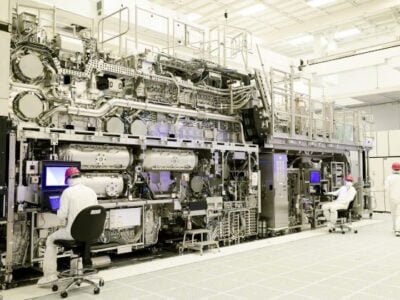
Alkaline fuel cells offer benefits over acidic ones
In contrast to acidic fuel cells for which platinum has been identified as the best catalyser, alkaline cells content with gold, which is significantly cheaper. The only building block still missing to produce alkaline fuel cells is a membrane that performs well, explained professor Wolfgang Schmickler and Dr. Elizabeth Santos, both from the Institute of Theoretical Chemistry in Ulm, Germany. "As soon as such a membrane is found – and there are very promising approaches – alkaline fuel cells will assert themselves," the scientists believe.
In an article recently published in the magazine "Angewandte Chemie International", they put the focus on oxygen reduction. In many fuel cells, this process is slow and not very efficient, they explained. Their "Theory of Electrocatalysis" answers the question why a relatively cheap catalyser such as gold performs well in alkaline media, but not in acidic environments. By means of a large number of quantum statistic computations, they found the answer: In alkaline media, the first step of the reaction is favourable in terms of thermodynamics. At this stage, actually no catalyser is required at all, the reduction of the oxygen takes place on its own, in a distance of just a few angstrom from the electrode. In acidic environments, the reduction is only efficient if a good catalyser helps to absorb the oxygen.
These findings can be applied to novel lithium-air batteries as well, the researchers said. While the potential of lithium-ion batteries is said to be rather exhausted, these batteries theoretically offer a much higher energy density. "Our theoretical considerations can offer important hints to the design of efficient batteries and thus help save time and costs", Schmickler explained.
Besides Schmickler and Santos, scientists from Argentina and Russia were involved in the considerations. They also received support by the Argentine research community CONICET and by the European Union within the ELCAT.
 If you enjoyed this article, you will like the following ones: don't miss them by subscribing to :
eeNews on Google News
If you enjoyed this article, you will like the following ones: don't miss them by subscribing to :
eeNews on Google News



